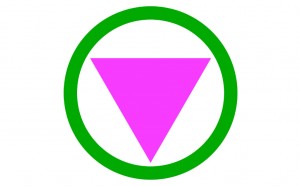
A hot-button issue for many on all areas of the political landscape, safe spaces on college campuses have triggered an influx of both resentment and acclamation. Their very existence fosters a heated debate throughout the western world. A safe space can be defined as a designated location wherein “marginalized” students can gather to feel secure.
Left-wing extremists, or “social justice warriors” largely propagate the aforementioned safe spaces as necessary in achieving the purpose of higher education and vital to ensuring the intellectual comfort and security of students. These social justice warriors do not realize the irony of these assertions, as they contradict each other. It is not the purpose of higher education to harbor an intellectual echochamber, wherein everyone feels unchallenged. Rather, it is a place of open dialogue and exchange of different, often contradictory ideas that colleges seek to create. For all the time social justice warriors spend stressing the importance of diversity, one would think this would extend to diversity of thought.
Regrettably, in response to the rise of social justice warriors, leftists like Gad Saad, Christina Hoff Sommers and Dave Rubin feel disenfranchised by the actions and rhetoric of those who propagate “pc culture” under the guise of progressivism. One would not typically think of public shaming, deplatforming, or threatening someone’s livelihood as progress. However, they have made significant progress in hijacking the term “progressive” and associating it with their authoritarian brand of leftism.
“If we are afraid to utter one syllable that might somehow necessitate you going into a safe space, it shatters the possibility for dialogue,” said Gad Saad, Professor of Marketing, and holder of the Concordia University Research Chair in Evolutionary Behavioral Sciences and Darwinian Consumption.
In Matthew Guterl’s defense of safe spaces, he wryly gives what he believes to be the definition of free speech according to his detractors. As one of his detractors, one would be remissed not to point out that there is be no need for freedom of speech if it does not include that which society deems “troubling.” In that case, Laws protecting free speech serve no purpose, because society already protects ideas consistent with societal norms.
“[Free speech] almost always seems to mean the freedom to speak of things consistently defined as backward or troubling,” said Matthew Guterl, a professor at Brown University, in reference to those who argue that safe spaces are anti-free-speech.
Those who defend the establishment of safe spaces argue that they exist to ensure that if a student becomes “triggered” by the material covered in the classroom, he has a place where he can go to feel safe. However, if a student experiences extreme distress brought on by any one topic, then colleges must provide easily accessible mental health services conducted by mental heath professionals, as such is not the responsibility of their professors.
Moreover, those who do not have a psychological disorder that may preclude them from exposure to an environment that subjects them to potential triggers, they should not perpetuate the misguided notion that safe spaces will benefit them. It is the purpose of higher education, not to create an echo chamber, but to establish an environment that allows for a free and open exchange of ideas.
